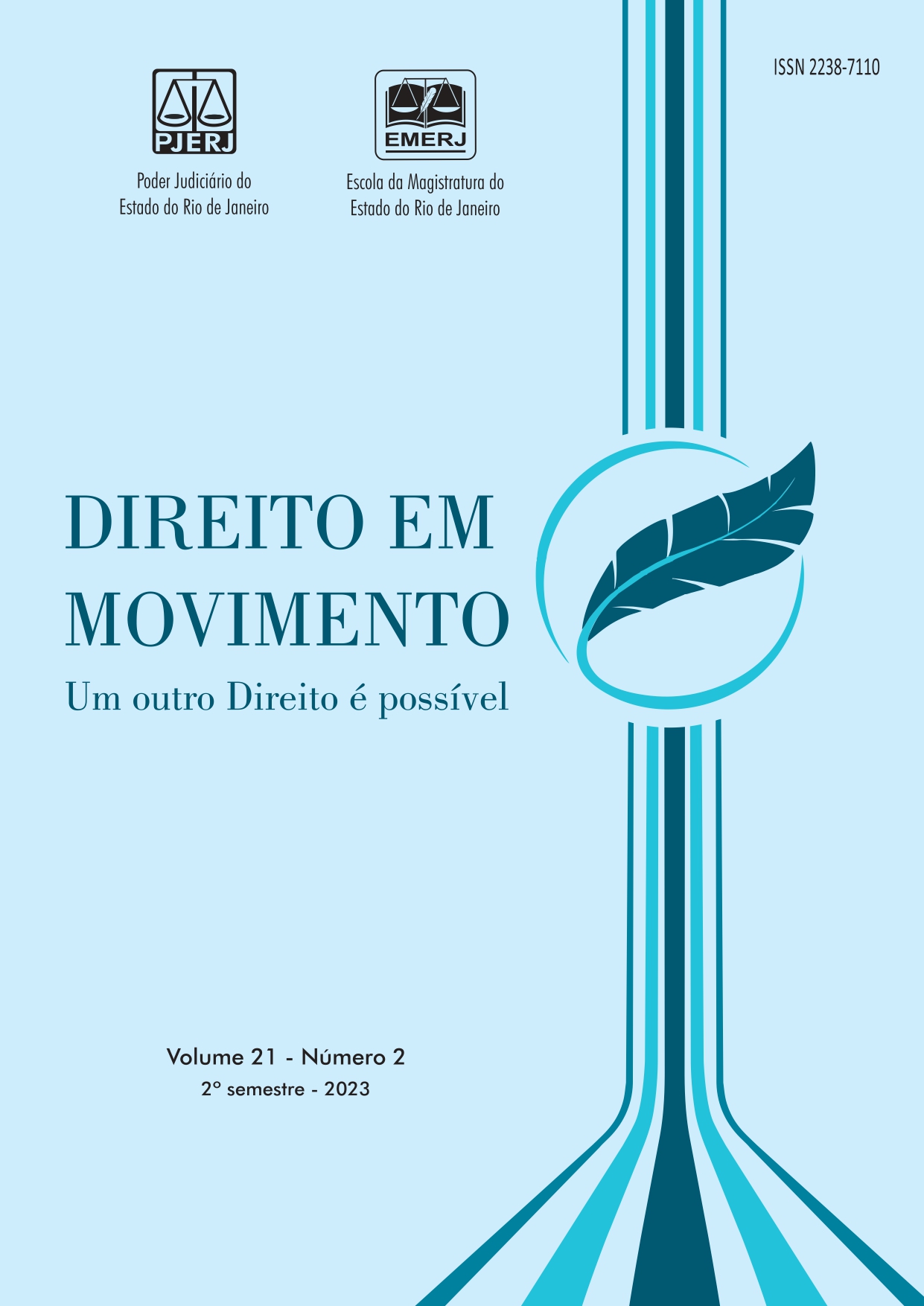The Yanomami's´ traditional burial rituals and the state-imposed limitations due to the COVID-19 pandemic
A fundamental rights collision
Palavras-chave:
Covid-19, liberdade religiosa, povos tradicionais, direitos humanosResumo
Due to the Covid-19 pandemic, a Yanomami was contaminated and died. The Roraima state authorities imposed a series of restrictions on the release of the body, requiring immediate burial in the local cemetery to avoid the possible risk of mass contagion. Roraima's Health Secretary stated that the immune system of indigenous people is more sensitive to respiratory diseases and that Covid-19 infection in a tribal community could have devastating effects. The fact is that, in general, in Yanomami culture, the spirit of the dead will only be released from the body (and not perish with it) if proper funeral rituals are performed, which require, for example, cremating the body and then eating its ashes in porridge prepared especially for the occasion. Only when the village consumes this sacred mixture, called "ripu", is it guaranteed that the spirit of the deceased will rest. The deceased's relatives requested the body's release for transport to their village for the funeral ceremony preparations. They argued that it was not a question of discussing the absolute or relative meaning of life, health, or the risk of contagion, but of respect for the indigenous culture, which should require these rights to be guaranteed by the State as seen by the community and not from the point of view of the surrounding society. They support their claim in Article 231 of the Constitution of the Republic (respect for their social organization and traditions), in Article 7.1 of ILO Convention 169 (right to define their priorities), and in item 57 of Resolution 1/2020 of the Inter-American Commission on Human Rights on Pandemic (health care according to the culture of tribal peoples).
Referências
ALEXY, Robert. Teoria de los derechos fundamentales. Tradução de Ernesto Garzón Valdés. Madri: Centro de Estudios Politicos y Constitucionales, 2001.
ANJOS FILHO, Robério Nunes dos. Comentários à Constituição Federal de 1988. In: BONAVIDES, Paulo et al. (coord). Rio de Janeiro: Forense, 2009.
CANOTILHO, José Joaquim Gomes. Direito Constitucional e Teoria da Constituição. 3 ed. Coimbra: Almedina, 1999.
DINIZ, Maria Helena. Legal Dictionary. 2. ed. rev. atual. e aum. São Paulo: Saraiva, 2005. vol.4.
DURKHEIM, E. As formas elementares da vida religiosa. Trad. Paulo Neves. São Paulo: Martins Fontes, 1996.
EDUARDA, M.; FRUTUOSO, J.; BELLAGUARDA, Maria.; LUNA, I. Funeral rites in the COVID-19 pandemic and grief: possible reverberations. Escola Anna Nery, Rio de Janeiro, vol.26, 2022.
INTER-AMERICAN COMMISSION ON HUMAN RIGHTS. Resolution n. 1/2020: pandemic and human rights in the Americas. Washington, 2020.
JÚNIOR, D. C.; NOVELINO, Marcelo. Constituição Federal para concursos. 3. ed. rev. ampl. e atual. Salvador: JusPODIVM, 2012.
LUNO, Antonio Enrique Perez. Los derechos fundamentales. Madri: Tecnos, 2004.
MASSON, Nathalia. Manual de Direito Constitucional. 4. ed. rev. ampl. e atual. Salvador: JusPODIVM, 2016.
SILVA, José Afonso da. Curso de Direito Constitucional Positivo. 5. ed. rev. ampl. de acordo com a nova Constituição. São Paulo: Revista dos Tribunais, 1999.
TELES, E.; CALAZANS, M. The pandemic and the management of deaths and casualties. São Paulo: Federal University of Sao Paulo, Center for Forensic Anthropology and Archivology (CAAF), 2021.
TEIXEIRA, P. FREIRE, A. Sociocultural transformations of funerary rituals and cemiterial of practices in pandemic times. Ciência geográfica, Bauru, vol. 25, n.1, p.208-222, jan./dez. 2021.
WORLD HEALTH ORGANIZATION. Practical considerations and recommendations for religious leaders and faith-based communities in the context of COVID-19: interim guidance, 7 April 2020.
Downloads
Publicado
Como Citar
Edição
Seção
Licença
Copyright (c) 2023 Erick Cavalcanti Linhares Lima, Alcenir Gomes de Souza

Este trabalho está licenciado sob uma licença Creative Commons Attribution 4.0 International License.
Autores que publicam nesta revista concordam com os seguintes termos:
- Autores mantém os direitos autorais e concedem à revista o direito de primeira publicação, com o trabalho simultaneamente licenciado sob a Creative Commons - Atribuição 4.0 Internacional que permite o compartilhamento do trabalho com reconhecimento da autoria e publicação inicial nesta revista.
- Autores têm autorização para assumir contratos adicionais separadamente, para distribuição não-exclusiva da versão do trabalho publicada nesta revista (ex.: publicar em repositório institucional ou como capítulo de livro), com reconhecimento de autoria e publicação inicial nesta revista.
- Autores têm permissão e são estimulados a publicar e distribuir seu trabalho online (ex.: em repositórios institucionais ou na sua página pessoal) a qualquer ponto antes ou durante o processo editorial, já que isso pode gerar alterações produtivas, bem como aumentar o impacto e a citação do trabalho publicado (Veja O Efeito do Acesso Livre).

















